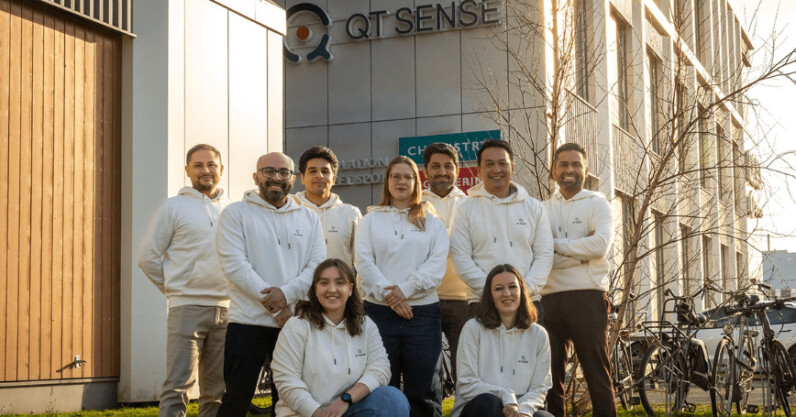Reading List
The most recent articles from a list of feeds I subscribe to.
Anthropic spent millions on Super Bowl ads to roast OpenAI

Everyone knows Super Bowl commercials are expensive, bombastic, and designed to be talked about. What we didn’texpect was an AI startup using the biggest ad stage of the year to throw shade at a rival’s advertising strategy. That’s exactly what Anthropic has done. The company bought Super Bowl airtime to broadcast a simple message: “Ads are coming to AI, but not to Claude.” Its ads depict a chatbot spitting product pitches mid-conversation, ending with a clear contrast to its own ad-free promise. Even ads these days aren’t what they used to be. Video: Can I get a six pack quickly?, uploaded…
This story continues at The Next Web
UiPath pushes deeper into financial services with WorkFusion acquisition

UiPath, the Romanian unicorn, has agreed to buy WorkFusion, bringing a specialist in AI agents for financial-crime compliance into its fold as part of a broader push into agentic automation for the banking sector. The deal closed in UiPath’s first quarter of fiscal 2027; financial terms were not disclosed. WorkFusion’s software focuses on repetitive and resource-intensive parts of compliance work, from customer screening and anti-money-laundering (AML) checks to know-your-customer (KYC) investigations. “Financial institutions need intelligent solutions to combat sophisticated financial crimes and navigate evolving compliance requirements,” said Daniel Dines, CEO of UiPath. Those capabilities now sit alongside UiPath’s existing automation…
This story continues at The Next Web
Europe’s social media age shift: Will tougher rules change how teens use the internet?

It is just the beginning of 2026, and things are happening even faster than last year. Not only in technology, but also in regulations, laws, and in how we deal with all the information around us. As a person born in the 90s, social media was once an unknown land for me, a place that felt genuine in the beginning. It still had dangers, but it seemed less risky, or maybe our parents’ rules were stricter. I don’t want to go down the psychological path here, but I want to look at where we are headed with so much risk,…
This story continues at The Next Web
TechEx Global returns to London with enterprise technology and AI execution

London, TechEx Global 2026, one of Europe’s biggest enterprise technology conferences, brought thousands of technology professionals together at Olympia London on 4 and 5 February. The event went beyond buzzwords, focusing on how emerging technologies, especially AI, are being applied in real business contexts. TechEx Global combines several co-located expos, including AI & Big Data, Cyber Security & Cloud, IoT Tech, Intelligent Automation, and Digital Transformation. Over 200 expert speakers and 150 exhibitors offered insights into how organisations are using digital tools to solve real problems and make decisions, not just generate answers. From talk to execution One recurring theme…
This story continues at The Next Web
QT Sense raises €4M to advance a quantum sensing platform

QT Sense, a deep-tech biotech startup building tools to study living cells, announced it has secured €4 million in funding to accelerate its Quantum Nuova platform, a technology that lets scientists observe cellular processes in real time and reveal biochemical activity linked to disease. The funding includes a €3 million seed investment led by Cottonwood Technology Fund, with follow-on backing from existing investor QDNL Participations and an angel investor. In addition, the company received €600,000 from the ONCO-Q programme to support cancer research and €400,000 through the Quantum Forward Challenge for collaborative deployments with research partners. Most traditional lab methods…
This story continues at The Next Web